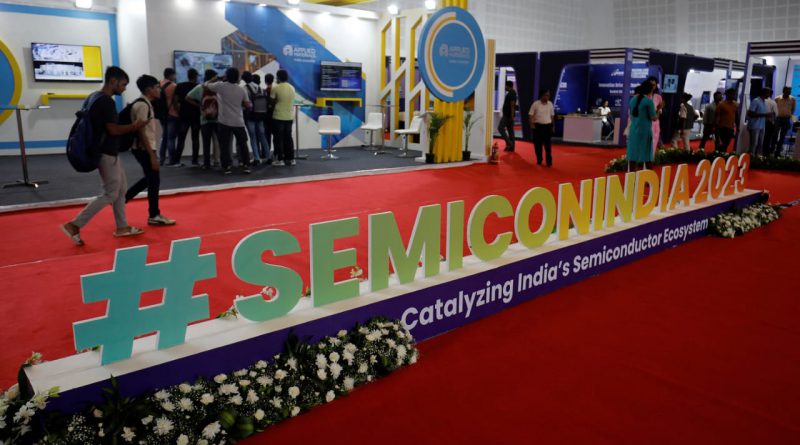Modi tells investors India wants to be “trusted partner” for chipmaking
Gandhi Nagar (Reuters) – India wants to emerge as a trusted partner for the semiconductor industry and is keen to be a chip supplier for the world, Prime Minister Narendra Modi said on Friday, as he steps up efforts to attract global investors to establish production in the country.
“To expedite the growth of the semiconductor sector in the country, we are continuously undertaking policy reforms,” said Modi, who has made chipmaking the top priority of his economic policy. “We are working with partner countries for a comprehensive roadmap for semiconductor industry.”
At the SemiconIndia conference, held in Modi’s home state of Gujarat, U.S. chipmaker Advanced Micro Devices (AMD.O) announced plans to invest around $400 million in the country over the next five years and build its largest design centre in the tech hub of Bengaluru.
The investment bodes well for the event, which is the prime minister’s latest attempt to attract investors into the chip industry after his initial bid to offer incentives floundered.
A few weeks ago, Foxconn backed out of a $19.5 billion chips joint venture with Vedanta, saying “the project was not moving fast enough”. Foxconn has since decided to go solo.
Two other consortia, including one that involved Israel’s Tower Semiconductor (TSEM.TA), had announced plans to invest $3 billion each, but the proposals have since stalled.
India is currently re-inviting applications under a $10 billion incentive scheme.
Most of the world’s chip production is limited to a handful of centres, such as Taiwan. Modi’s comment received endorsement from Foxconn.
Young Liu, the chairman of Foxconn that is officially called Hon Hai Precision Industry Co Ltd (2317.TW), told the event: “I can feel the determination of the Indian government. I am very optimistic of where it’s headed.”
Despite being a late entrant, India estimated the local chip market to be worth $80 billion by 2028, almost four times its $23 billion size now.


